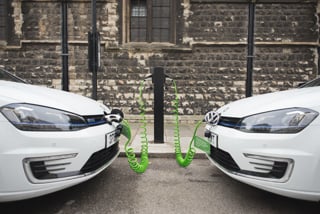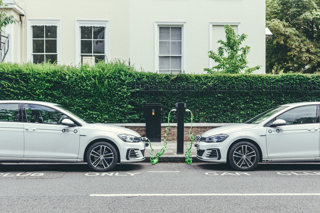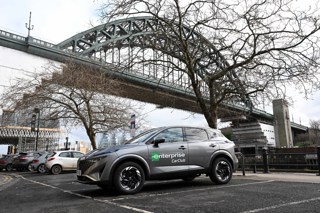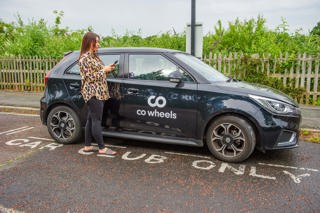Think tank IPPR is urging the Mayor of London Sadiq Khan to “seize the opportunity” offered by new shared transport, such as car clubs, and digital technology to overcome London’s transport problems.
In a new report, which was launched on Friday, IPPR argues that London is at a crossroads between two futures. One where the transport network is increasingly gridlocked, the air grows "ever dirtier" and the cost of accessing good transport increases. Or one where the best of digital technology is used to reduce journeys and air pollution, opening up new opportunities to make London a more attractive place to live.
New private hire technology like Uber and new delivery patterns driven by companies like Amazon are just a "first glimpse of the size of the revolution that digital technologies will unleash on London’s transport system", according to IPPR.
It believes future technologies, such as autonomous vehicles and Mobility as Service platforms, promise "even bigger and more rapid change".
Car clubs, like DriveNow and Zipcar, should be a key part of the Mayor’s vision for London’s transport system, according to IPPR, and it suggests the Mayor’s Transport Strategy should include measures for how car clubs can help achieve key transport objectives.
It also recommends:
- Developing an explicit framework for new travel markets, in collaboration with operators of new transport services such as flexible car clubs and demand-responsive taxi services.
- Transport for London (TfL) and boroughs should work with operators to develop borough-by-borough agreements to enable car club development.
- Setting out the positive outcomes for the transport system, and how each new service and mode can contribute to support the uptake of more sustainable travel.
- Making TfL the central hub for travel data in London to help target areas in need of more efficient means of transport and create a more equal transport system as a whole.
- Appointing a chief digital officer for London who anticipates the potential impacts of digital technologies and ensures the London government takes action on these to modernise the city’s transport system.
Laurie Laybourn-Langton, IPPR research fellow said: “London is on the cusp of major changes to the way people move around the city. Shared transport and digital technology have the potential to drive positive transport outcomes and overcome London’s transport difficulties, thereby improving the city’s spaces and Londoner’s lives.
“Public intervention is required to realise these ends, and a window of opportunity currently exists in which action can and must be taken by London’s government. When this window closes, it will significantly increase the chances of a negative path dependence upon which technology will worsen existing problems, such as air pollution and congestion, and create new ones.
“Therefore, the mayor should incorporate a vision for new transport technologies into the Mayor’s Transport Strategy. If defined by a clear set of objectives for London’s overall transport network and a framework through which it can be achieved, this vision can deliver a more sustainable, accessible and active London transport system.”
Speaking at the IPPR conference on future transport, Alistair Kirkbride, executive director of non-governmental organisation Carplus, which promotes the shared transport sector, higlighted the potential of clean, green car clubs to improve London's air.
Currently 193,000 people in London drive car club cars, according to CarPlus, and the car club fleet consists of just under 3,000 of the cleanest vehicles.
Kirkbride said: “Car clubs can make a huge contribution to improving air quality. Not only are they cleaner, with low or no tailpipe emissions, but car club members drive less than average Londoners."
He added: "If we could get one million people to give up cars and drive car club vehicles instead we could see a huge improvement in air quality – and a reduction in congestion and the space our crowded capital gives to cars.”
Councillor Julian Bell, chair, Transport and Environment Committee, London Councils, added: “I see car clubs as part of the solution in improving our air quality as well as liberating road space. As private car use in London falls year on year, it is important that the remaining vehicles are as clean as possible and used as efficiently as possible. Car clubs also help to make electric and other low emission vehicles available to people who may not be able to afford them otherwise. Not only does evidence suggest that car clubs replace at least 10 London cars with a single car club car, but significantly that car club car is low or zero emission.”



















Login to comment
Comments
No comments have been made yet.